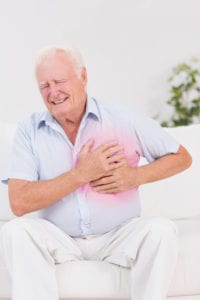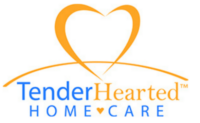FAQ’s on Heart Attacks in Aging Adults
Do you know what to do if your aging loved one is having a heart attack? Your knowledge on the topic may be the difference between a full recovery and a more tragic result. Most people think they can tell when a heart attack is happening, but research shows that some of the most common symptoms are not recognized by seniors, family caregivers and others.
Once you learn about the risk factors, common symptoms and what to do, you’ll be in a better position to help if that day ever arrives. You can also make sure everyone else in your elderly relative’s support group also knows, such as other family members, friends, and senior care providers.

Senior Care Lexington NC – FAQ’s on Heart Attacks in Aging Adults
Here are some frequently asked questions about heart attacks in elderly adults:
Q: What exactly happens during a heart attack?
A: A heart attack happens when an artery is blocked or ruptures, which stops the flow of oxygen-rich blood to the heart. When the heart muscle doesn’t get oxygen, the cells there begin to die. A heart attack is the process of heart muscle cells becoming damaged and dying. A heart attack can last for a few minutes to several hours, depending on a number of factors.
Q: What are the symptoms of a heart attack?
A: Chest pain and pressure, particularly in the left side, are the most common symptoms, but many elderly adults experience heart attacks without them. Other symptoms include pressure or pain in the shoulder, neck and jaw, as well as a stomach ache and nausea. Sweating, shortness of breath and heartburn are other symptoms that get overlooked.
Q: How does fast diagnosis help seniors?
A: Fast medical attention is critical to survival and the level of recovery. During a heart attack, the goal is to restore blood flow to the heart before too many heart muscle cells die. Doctors can do a lot to remove blockage or otherwise treat a heart attack to minimize the damage. If seniors receive treatment within the first few hours of a heart attack, the odds are good that they will recover.
Q: What should family caregivers and senior care providers do if they suspect a heart attack?
A: The worst thing that family caregivers and senior care providers can do is to ignore the symptoms. Delaying medical treatment can have tragic results. If the family caregiver or senior care provider suspects that a heart attack is in progress, they should call in emergency medical services. It’s much better to have a false alarm than to delay treatment for a heart attack.
If you or an aging loved one are considering Senior Care Services in Lexington NC, please contact the caring staff at TenderHearted Home Care today. (704) 612-4132.
- 5 Things That Help Seniors Sleep Better - April 18, 2024
- It’s Okay to Think About Your Needs and Not Just an Aging Parent’s, and In-Home Care Helps You Do That Without Guilt - April 4, 2024
- Volunteering Tips for Seniors - March 22, 2024

